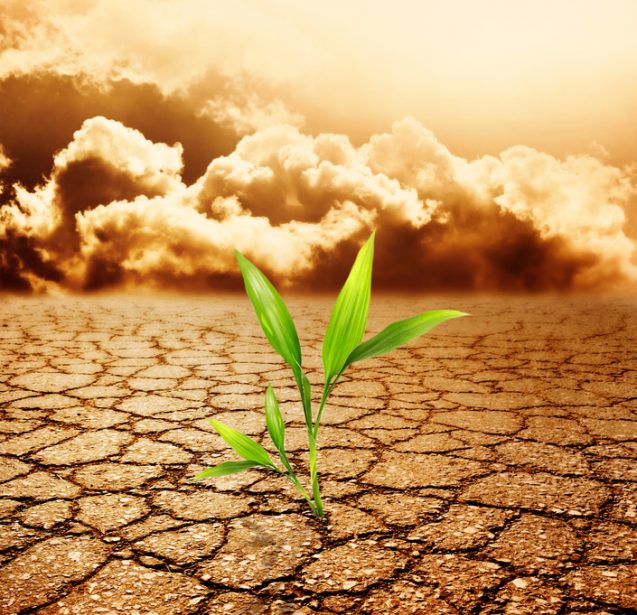From Femi Mustapha, in Kaduna
The Vice Chancellor of the Ahmadu Bello University Zaria, Prof. Kabiru Bala has said that Climate Change is a threat to agriculture, noting that it has left no sector untouched, and agriculture, which is the backbone of the nation’s economy, is especially vulnerable to global climate crisis.
He stated this in his opening speech at the 2024 National Agricultural Extension Review and Planning Meeting organized by the National Agricultural Extension and Research Liason Services (NAERLS/ABU) held at the institute’s Conference hall in Kaduna, today.
According to him, Farmers across Nigeria, are feeling the impacts of erratic rainfall, rising temperatures, and extended dry spells, noting that these climatic changes threaten food security, rural livelihoods, and our progress toward sustainable development.
He stressed that, the theme of the meeting, “The Climate Change: Rethinking Agric Research, Extension, and Cropping Pattern in Nigeria,” could not be more timely or relevant.
The Vice Chancellor called upon the participants to rethink not only how food is produced and distributed but also how to conduct research, deliver extension services, and support farmers in the face of new environmental challenges.
“As a leading institution of higher learning and research, Ahmadu Bello University is committed to driving impactful agricultural research that addresses the evolving needs of our farmers and communities”.
“Today, we must ask ourselves critical questions. Are our research agendas aligned with the realities of climate change? Are we prioritizing studies that foster resilience to droughts, floods, and pests exacerbated by climate variability, and are we exploring innovative methods and technologies that could transform our farming systems into climate-resilient models?”
The VC added that, “Our research must pivot to deal with these questions by investing in climate-adaptive research, we can equip our farmers with the knowledge and tools needed to withstand unpredictable growing seasons.
“Today, the role of extension officers extends beyond merely disseminating information and they must be empowered to support farmers with adaptive practices that respond to changing weather patterns and promote environmental sustainability.
In view of these, He advised the careful consideration of cropping patterns and practices to enhance food security and minimize risks, while traditional planting cycles are no longer sustainable in the face of climate disruptions.
“It is a collective mission that calls for partnerships between universities, research institutes, government agencies, private sector players, and the farmers themselves.”
Similarly, in his welcome address, the Executive Director NAERLS Prof. Yusuf Ahmad Sani said, Climate change is no longer a distant reality; its impacts are here, reshaping ecosystems, altering rainfall patterns, and threatening food security across the globe.
He noted that for a nation where agriculture contributes significantly to GDP and employs over 70% of the rural population, the stakes could not be higher.
“These challenges are particularly devastating for our smallholder farmers, who form the backbone of food production. Without proactive measures, climate change threatens not just food security but the livelihoods of millions of Nigerians.”
According to him, the National Agricultural Extension and Research Liaison Services (NAERLS) which has a national mandate in agricultural extension so holds a critical responsibility to spearhead the dissemination of climate-resilient farming solutions by collaborating with various stakeholders.
“Addressing climate change requires us to rethink how we conduct agricultural research such as focusing on climate resilient crops, data driven innovation, collaboration with stakeholders. Agricultural extension services must evolve to meet the realities of climate change. Mobile-based solutions can bridge the gap between research institutions and farmers.”
“Extension workers must be trained on climate-smart agriculture and modern technologies. They are the critical link between scientific knowledge and grassroots action. Farmers are not just recipients of knowledge but custodians of indigenous practices.
“By integrating their experiences with scientific research, we can create holistic solutions. The Nigerian agricultural sector must rise to this challenge with innovative thinking and deliberate action.
“Addressing climate change necessitates a shift in how and what we grow. Cropping patterns must align with emerging climatic realities such as diversification, agroecology and conservation agriculture.
“The collaboration between federal and state governments, research institutes, NGOs, and private sector actors is vital. Policymakers must prioritize funding for climate-resilient agricultural initiatives and ensure that farmers have access to affordable inputs and insurance against climate change.”
The Director reiterated that NAERLS is committed to working with government agencies, donor organizations, and the private sector to ensure that resources and frameworks are in place for sustainable agricultural transformation.
“By rethinking agricultural research, revolutionizing extension services, and adopting sustainable cropping patterns, we can build a resilient agricultural sector that not only feeds Nigeria but drives economic growth and development.
“The task ahead is daunting but not insurmountable. As we rethink agricultural research, extension, and cropping patterns in the face of climate change, we must act decisively, inclusively, and innovatively. Let us seize this opportunity to position Nigerian agriculture as a resilient, adaptive, and sustainable force for national development,” He said.







